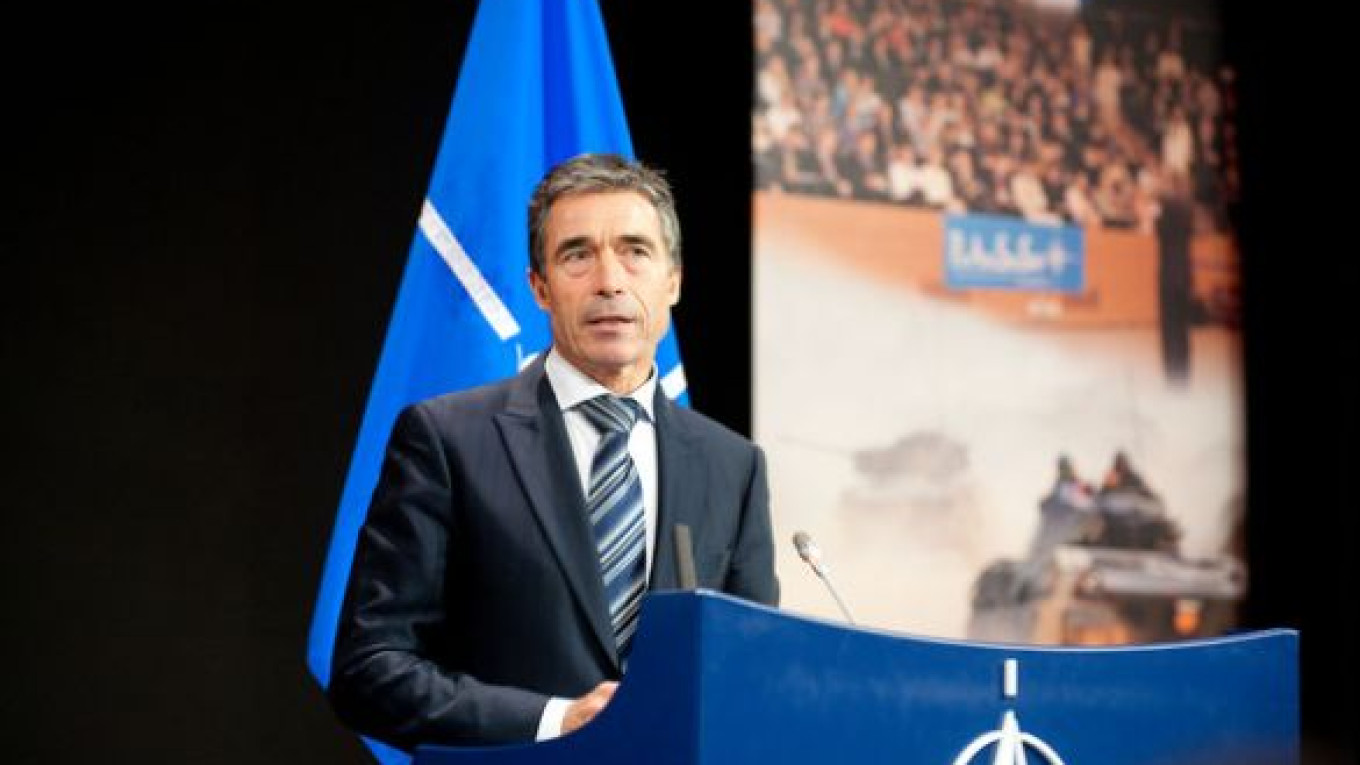BRUSSELS — Two months after an opposition party swept elections in Georgia, NATO on Tuesday reconfirmed its 2008 decision to treat the nation as a future member but expressed concern about its democratic development.
"Georgia's commitment to NATO is solid. And NATO's commitment to Georgia remains just as solid," the alliance's secretary-general, Anders Fogh Rasmussen, told reporters after talks with the South Caucasus country's new foreign minister, Maia Pandzhikidze, on Tuesday in Brussels.
Rasmussen added that it was important that Georgia continued to stay on the path of democratic reforms. "The challenge now is to maintain momentum," he said.
NATO member countries have expressed concern about a series of arrests of former government officials following the victory of opposition leader Bidzinia Ivanishvili in parliamentary elections in October.
Ivanishvili was subsequently elected prime minister and is currently in an uneasy cohabitation with President Mikheil Saakashvili.
Rasmussen said that periods of cohabitation were never easy and that it was "of utmost importance" that Georgian authorities respect the rule of law and that the arrests are not perceived as political. "We will follow the development closely," he said.
He added that Pandzhikidze assured him that the government would not interfere with the judiciary.
Latvia's foreign minister, Edgars Rinkevics, warned that Tbilisi would "lose a lot" if it deviated from democratic development.
Speaking to reporters in Brussels, Rinkevics said that many countries would come out against offering more integration to Georgia "if there are the slightest suspicions that the processes are political." He added that Georgia would see "enormous attention" by European and NATO countries on its domestic political situation in coming months.
The talks were held on the second day of a meeting of NATO foreign ministers in Brussels.
Georgia's prospective NATO membership has been the biggest thorn in the Western alliance's relations with Moscow in the past.
However, Foreign Minister Sergei Lavrov did not mention the issue during a news briefing after a session of the NATO-Russia Council on Tuesday.
Asked about the chances of improving relations, as suggested by members of Ivanishvili's government, Lavrov said that Moscow was not opposed to this.
As examples he mentioned cultural and humanitarian ties, which he said had not been severed after 2008, when diplomatic relations were cut in the wake of the Russia-Georgia war.
Lavrov said that Moscow was prepared to allow the import of Georgian food products — banned by Moscow back in 2006 — "if they comply with Russian [quality] standards."
But he warned that there would be no compromises about the two Georgian separatist territories that Moscow recognized as independent in 2008.
"Our Georgian neighbors say they want to normalize relations while they confirm that they view South Ossetia and Abkhazia as occupied territories. Maybe this rhetoric is not helpful for beginning a dialogue," he said.
Related articles:
A Message from The Moscow Times:
Dear readers,
We are facing unprecedented challenges. Russia's Prosecutor General's Office has designated The Moscow Times as an "undesirable" organization, criminalizing our work and putting our staff at risk of prosecution. This follows our earlier unjust labeling as a "foreign agent."
These actions are direct attempts to silence independent journalism in Russia. The authorities claim our work "discredits the decisions of the Russian leadership." We see things differently: we strive to provide accurate, unbiased reporting on Russia.
We, the journalists of The Moscow Times, refuse to be silenced. But to continue our work, we need your help.
Your support, no matter how small, makes a world of difference. If you can, please support us monthly starting from just $2. It's quick to set up, and every contribution makes a significant impact.
By supporting The Moscow Times, you're defending open, independent journalism in the face of repression. Thank you for standing with us.
Remind me later.


